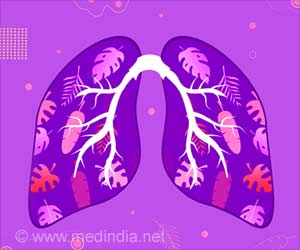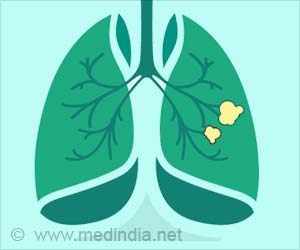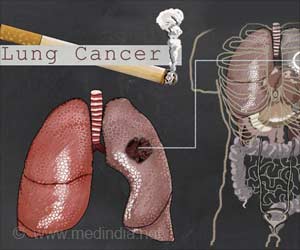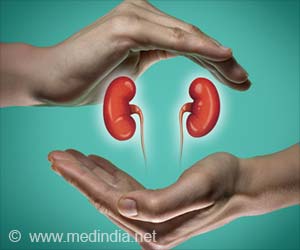Lung Cancer Awareness Month is celebrated annually in November. It aims to create awareness about the dangers of lung cancer and also highlight the importance of early detection for better treatment outcomes
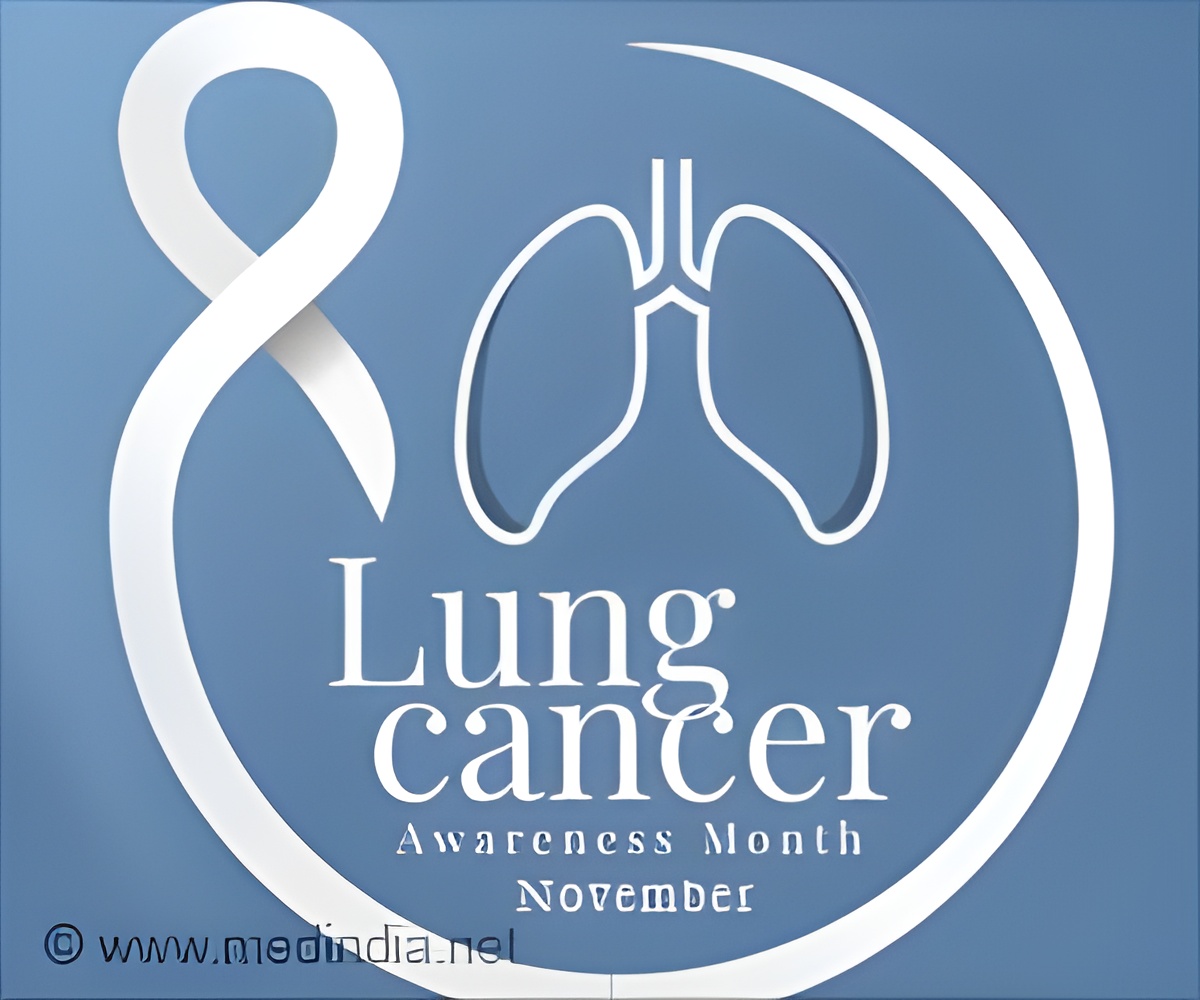
- Lung Cancer Awareness Month is celebrated annually in November
- Its objective is to raise awareness and enlighten the population about the dangers of lung cancer
- It stresses the vital importance of early diagnosis and prompt institution of treatment
Throughout November, the LCAMC proactively generates awareness among the global community about the vital need for risk reduction, early detection and treatment of lung cancer, which is the deadliest of all cancers. It also proactively educates doctors how to improve treatment outcomes for patients suffering from lung cancer.
This year, Lung Cancer Awareness Month is being sponsored by several leading pharmaceutical companies, such as Novocure, Bristol-Myers Squibb, Lilly, Novartis, Takeda, Genentech, and Astra Zeneca.
History of Lung Cancer Awareness Month
The history of Lung Cancer Awareness Month dates back to the year 1995. At that time, it used to be observed for just one day and was known as Lung Cancer Awareness Day. However, as the years went by, slowly but surely, the activities and events for generating awareness progressively expanded. This was accompanied by unprecedented enthusiasm and whole-hearted participation by people from all walks of life across the world. As a result, the celebrations expanded to cover the entire month of November and came to be known as Lung Cancer Awareness Month.Objective of Lung Cancer Awareness Month
The major objective of Lung Cancer Awareness Month is to encourage people having suspicious symptoms of lung cancer to get screened at the earliest. Early detection is a must, in order to ensure successful treatment of lung cancer. Hence, the general public are educated so that they themselves can recognize the early warning signs. This will enable them to seek timely medical intervention.Basic Features of Lung Cancer
Some of the basic features of lung cancer are discussed below, including types, symptoms and signs, and treatment modalities:Types: Lung cancer occurs when there is uncontrolled proliferation of abnormal cells in the lungs. Lung cancer pathology exhibits the following two main types:
- Non-small Cell Lung Cancer (NSCLC): This is the major type of lung cancer that accounts for 85 percent of all lung cancers. It includes adenocarcinoma and squamous cell carcinoma.
- Small-cell Lung Cancer (SCLC): This is a minor type of lung cancer that accounts for only 15 percent of all lung cancers. It is caused by small round cells that form fleshy lumps. This type of lung cancer spreads much quicker than NSCLC.
- Persistent cough
- Blood with cough
- Severe chest pain
- Prolonged chest infection
- Hoarse voice
- Breathlessness
- Loss of appetite
- Unexpected weight loss
Lung Cancer: Facts & Figures
- Most common cancer worldwide
- Leading cause of cancer death across all ethnic groups
- 2 million new lung cancer cases occur annually worldwide
- 1.7 million lung cancer deaths occur annually worldwide
- 1 in 5 cancer deaths occur due to lung cancer
- 9 out of 10 lung cancer patients die within 5 years of diagnosis
- Lung cancer kills more people annually than breast, prostate and colon cancers combined
- Every 2.3 minutes someone is diagnosed with lung cancer
- 391 people die from lung cancer every day
- Kills 2 times as many women as breast cancer
- Kills 3 times as many men as prostate cancer
- Smoking is the single highest risk factor for lung cancer
- Women smokers are twice as likely to develop lung cancer than men
- 40 percent of teen smokers who continue to smoke die before the age of 60
- 20 percent of lung cancer deaths occur in people who have never smoked
Ways to Celebrate Lung Cancer Awareness Month
Some of the ways Lung Cancer Awareness Month can be celebrated are briefly highlighted below:- Virtual Talks: Due to the ongoing COVID-19 pandemic, virtual talks can be organized, where celebrity lung cancer survivors can share their personal experiences in their fight against lung cancer and how they eventually emerged victorious. These motivational talks will provide hope and inspiration to those living with lung cancer to keep fighting the disease and not lose hope
- Webinars: Dissemination of knowledge can occur through webinars, where renowned oncologists could provide accurate information on lung cancer to the general public, thereby helping to generate awareness
- Telehealth Consultation: Free follow-up consultation could be provided to lung cancer patients throughout the month of November. This will enable patients to virtually consult with their oncologists, which will alleviate the need to visit the hospital, unless absolutely necessary
- Real Life Stories: Real life stories of lung cancer survivors could be widely shared on various social media platforms, which will inspire and provide hope to all those living with lung cancer
- Social Media: Social media platforms, including Facebook, Twitter and Instagram should be fully utilized to post messages, stories, photos, videos, infographics related to lung cancer. This will disseminate the message far-and-wide in the shortest possible time
- Wearing ‘White’: Since the awareness color for lung cancer is ‘white’, people should be encouraged to wear white colored apparel and accessories. These could include ribbons, bracelets, wristbands, lapel pins, hats, jewelry and other items. This will not only show solidarity for lung cancer patients, but also help to raise funds for their treatment and care
Health Tips for Preventing Lung Cancer
Lung cancer can’t always be prevented, as it can occur due to genetic causes too. However, the risks can be significantly reduced by following the undermentioned health tips:- Quit Smoking: Smoking of all types of tobacco must be stopped. Cigarette smoking is the worst, which is responsible for 80-90 percent of lung cancer deaths. Smokers must kick the habit in order to reduce the risk of lung cancer. Approximately 10 years after quitting, the risk reduces to 50 percent that of smokers
- Avoid Second-hand Smoke: Breathing second-hand smoke emitted by a burning cigarette is just as bad as smoking itself. Exposure to second-hand smoke can be very dangerous and therefore, must be avoided. Therefore, it’s important to keep our homes, cars and workplaces smoke-free
- Reduce Occupational Exposure to Carcinogens: In certain occupations, workers can be exposed to various types of carcinogens that can be inhaled. These include dust and fumes emitted from substances like asbestos, arsenic, nickel, chromium, cadmium, beryllium, tar and soot. This type of occupational exposure can significantly elevate the risk of lung cancer. Therefore, personal protective equipment (PPE), such as masks must be worn to minimize exposure
- Wear Masks to Reduce Exposure to Air Pollution: There is abundant scientific evidence, which indicates that living in places where air pollution is high can significantly increase the risk of lung cancer. Here also, masks should be worn to reduce exposure
- Check for Radon: Radon is a radioactive gas emitted from degradation of underground uranium sources that can seep through cracked floors. Exposure to radon gas can significantly increase the risk of lung cancer. In this regard, smokers are even more at risk. Radon has been incriminated in 26 percent of lung cancer deaths in non-smokers. It is, therefore, very important to get homes tested and treated to minimize the risk of radon exposure
- Eat a Healthy Diet: A balanced diet having low fats, lots of green vegetables plenty of whole grains, fruits and high fibers has been shown to reduce the risk of lung cancer, as well as other cancers
- Exercise Regularly: Regular exercise is not only a healthy habit, but has also been shown to reduce the risk of lung cancer, as well as other cancers. At least 150 minutes of moderate-intensity aerobic exercises and 2 days of strength-training exercises is recommended for adults each week
References:
- Lung Cancer Awareness Month: Information, Research, Patient Services, Advocacy - (https://www.cancer.org/latest-news/special-coverage/how-acs-fights-lung-cancer.html)
- Lung Cancer Awareness Month - (https://lcam.org/)
- November is Lung Cancer Awareness Month - (https://lcfamerica.org/get-involved/november-lung-cancer-awareness-month/)
- Lung Cancer Facts - (http://www.lungcancercoalition.org/lung-cancer-facts.html)
- Prevention: Lung Cancer - (https://www.nhs.uk/conditions/lung-cancer/prevention/)
- Lung Cancer Prevention (PDQ®): Patient Version - (https://www.cancer.gov/types/lung/patient/lung-prevention-pdq)
Source-Medindia

